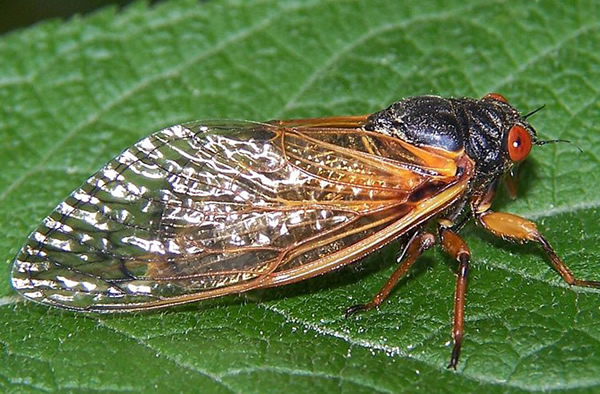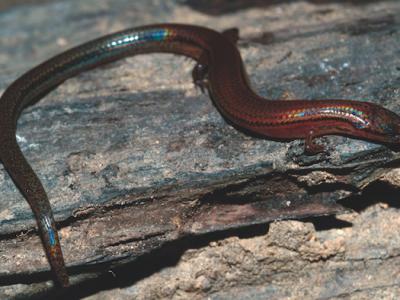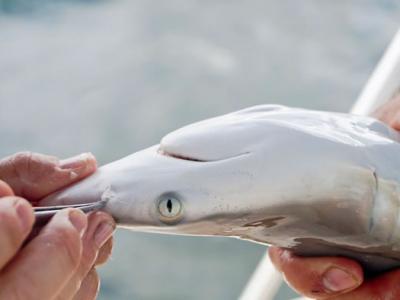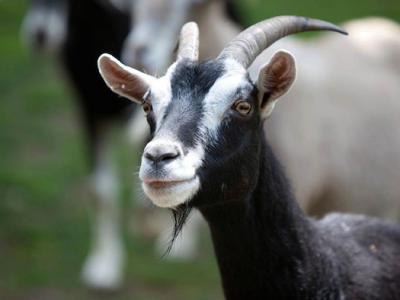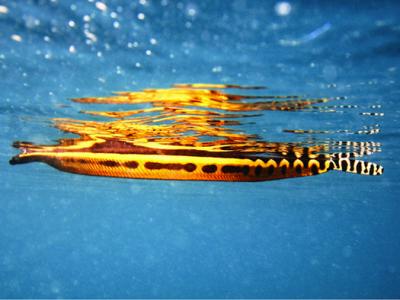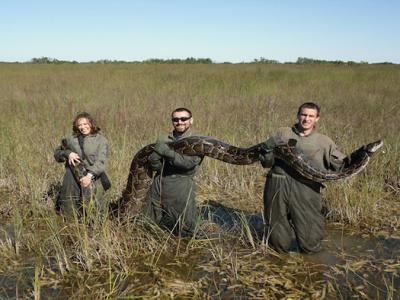The Cicadas Are Coming ...Hungry?
The shrill screech of cicadas is a dinner bell to people who engage in entomophagy, or the eating of insects.
Soon, these bug-biters will feast on a swarming smorgasbord that will encrust trees on the East Coast of the United States from Connecticut to Virginia. A group of cicadas, known as Brood II, will emerge from their 17-year slumber once soil temperatures reach 64 degrees Fahrenheit (18 degrees Celsius) this spring.
For those who wish to seek revenge on insects for years of mosquito bites and bee stings, the upcoming cicada swarm may be an opportunity to enter the world of entomophagy. Here's how:
A 17-year periodic cicada, Magicicada sp. brood XIII, in 2007, photographed at Lisle, Illinois.
The Most Scrumptious Cicadas
The bug hunt begins when the young cicadas, known as nymphs, burrow up from underground.
“The best time to collect cicadas is during the evening hours when the nymphs are climbing tree trunks,” entomologist Steve Murphree of Belmont University told Discovery News.
Young cicada nymphs are the most delicious, according to David Gracer, owner of SmallStock Food Strategies, a supplier of insect-based foods. Immediately after emergence, the cicadas' shells haven't hardened. The pale greenish-white insects are as soft as crab meat and have a taste similar to asparagus, he said.
Female cicadas make the most nutritious meal because they are loaded with eggs. To find protein-packed females search for cicadas with pointier abdomens, said Murphree. The pointed abdomen is caused by the female's ovipositor, the organ they use to lay eggs.
Find an Insect Eatery
To find the best hunting ground for emerging cicadas, Gracer recommends following your ears to where the insect orchestra plays loudest. That can be a good sign of that even more cicada snacks.
Another way to find a rich cicada source is to look for groups of birds feasting on the bug bounty, according to Daniella Martin. Martin writes about her insectivorous adventures on the Girl Meets Bug blog and is currently working on a book about her entomophagy experiences around the world. She also hosts an entomophagy cooking show on YouTube.
Don't Bite Bad Bugs
However, birds don't know everything about a bug's background, Martin warned.
“Birds don't know if the grubs are emerging from ground that has been sprayed with herbicides, fertilizers or other chemicals,” Martin said. “Whatever is in the ground could have been absorbed by the cicadas... It's safer to go to the woods, unless you know a lawn is organic.”
Gracer recommends that cicada seekers avoid the sides of roadways, golf courses, cemeteries and other places that have been sprayed with chemicals.
“If you have some concerns about an area, there is always somewhere else,” Martin said.
Bring 'Em Back Alive
Aspiring cicada hunters don't need to invest much to go on a successful hunt.
A children's bug net from the toy store helps hone hand-catching skills, said Martin. Then, a place to store the quarry is needed.
“An empty plastic soda bottle makes an awesome cicada container,” Martin said. “The small neck makes it easy to open the bottle and drop in a new catch without all the rest of the captives escaping.”
The bottle goes in the freezer until the insects have become cicada-cicles. Later, the hunter can cut the top off of the bottle and dump out the insects.
Only cicadas that survive the trip home should be eaten, warned Martin. Think of the insects as tiny shrimp: the fresher, the better.
In-sect-gredients
After a successful cicada search, the budding entomophagy enthusiast needs to cook up the catch into arthropod appetizers and many-legged main dishes.
Murphree recommends a cookbook put together by the University of Maryland Cicadamaniacs. The cookbook has recipes for everything from “cica-delicious pizza” to cicada stir-fry. There's even banana cicada bread for desert.
If only discarded shells show up, the empty husks can be used in a traditional Chinese medicinal tea, according to Gracer.
However, people with shellfish allergies should not indulge in insects, since bugs also can trigger a dangerous reaction.
Apr 3, 2013 04:30 AM ET by Tim Wall
